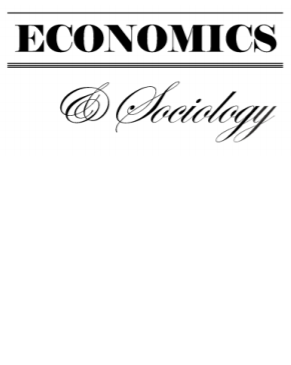RELATIVE CONSUMPTION WITH MULTIPLE REFERENCE POINTS UNDER UNCERTAINTY
RELATIVE CONSUMPTION WITH MULTIPLE REFERENCE POINTS UNDER UNCERTAINTY
Author(s): Kármen KovácsSubject(s): Micro-Economics, Political economy
Published by: Fundacja Centrum Badań Socjologicznych
Keywords: relative consumption; social comparison; social position; reference points; consumer utility model;
Summary/Abstract: According to the behavioural economic perspective, an individual’s consumer utility derives not only from their absolute consumption but also how much they consume relative to others, that is, relative consumption matters. The purpose of this paper is to study relative consumption by focusing on social comparison, multiple reference points, and uncertainty related to the expectations about others’ future consumption. The model presented reflects the dynamics and intertemporal effects of relative consumption concerning consumer utility. The purpose of the model is to describe, by applying theoretical comparative analysis, how an individual’s consumer utility derived from relative consumption can change when their social reference points’ future absolute consumption level is uncertain. When an individual wants to improve or at least sustain their relative consumption in the future, they have to take into account and estimate the future absolute consumption levels of the persons belonging to their reference group. However, neighbours’ future consumption is usually uncertain, thus, the likely outcomes are illustrated with various cases. The study concludes that higher absolute consumption level not necessarily provides higher consumer utility when positional concerns matter. Further, despite investments in positional goods, the misprediction of others’ future absolute consumption level can result in lower social standing.
Journal: Economics and Sociology
- Issue Year: 13/2020
- Issue No: 4
- Page Range: 61-80
- Page Count: 20
- Language: English

